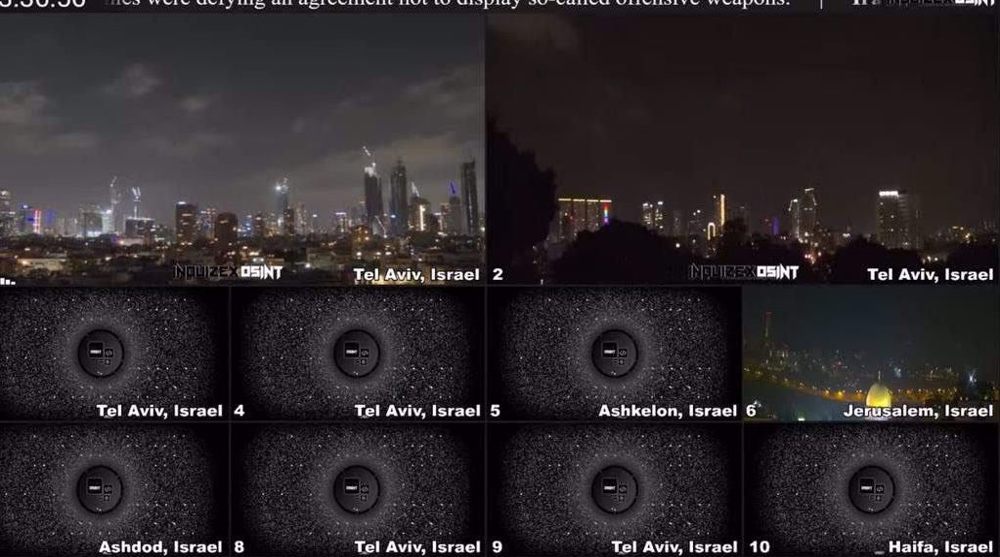As soon as Iran launched the ninth phase of its retaliatory military operation, True Promise III, late Monday, Israeli regime imposed a sweeping media blackout.
According to reports, live broadcasts from the skies over Tel Aviv and Haifa, illuminated by a large barrage of Iranian missiles and drones, were abruptly cut off by regime authorities.
Simultaneously, major Western media outlets, including American broadcaster CNN, halted their live aerial coverage from multiple cities across the Israeli-occupied territories.
As the night progressed and Iranian strikes intensified, some livestreams showing the skies over the occupied land on video-streaming and social media platforms such as YouTube and Instagram were rapidly removed, deepening the media blackout.
Inside the occupied territories, the crackdown has escalated in recent days.
Israeli media outlets have confirmed the arrest of several domestic and foreign journalists for filming the multiple waves of Iranian retaliatory missile and drone attacks.
The Israeli military had previously warned that recording and sharing footage of missile and drone impacts, especially their timing and locations, would be considered “aiding the enemy during wartime.”
Since Friday, the Islamic Revolution Guards Corps (IRGC) aerospace division has carried out nine phases of Operation True Promise III, targeting sensitive and strategic Israeli sites.
On Monday morning, Iranian missiles specifically struck the Zionist regime’s command and control centers, employing advanced tactics and upgraded intelligence technologies, capabilities the IRGC attributes to the legacy and sacrifices of martyred commanders.
A day earlier, on Sunday, the IRGC announced that it had hit Israeli fighter jet fuel production facilities and energy supply lines in a major drone and missile operation on Haifa.
According to military analysts, these precision operations have dealt a significant blow to the regime’s image, exposing vulnerabilities and shattering the myth of its military invincibility, which has prompted it to enact a media blackout.
Ghana is interested in purchasing a floating nuclear power plant from Russia, Ghanaian Ambassador to Russian Koma Steem Jehu-Appiah told Sputnik.
"I know that our minister of energy was here last year and signed a corresponding agreement. I think this is innovative, and in a conversation with the minister of energy, he said that the country is interested.
So, Ghana could purchase such a nuclear power plant," the diplomat said when asked about the possibility of Ghana purchasing a floating nuclear power plant.
Russia and Ghana began cooperation in the field of nuclear energy after signing an intergovernmental agreement in 2015.
The agreement outlined plans for joint work in the areas of training specialists, building nuclear power plants and related infrastructure, and providing maintenance services. In October 2023, representatives of Rosatom met with the Ghanaian Ministry of Energy in Cape Town. At the meeting, Russia proposed using floating nuclear power plants to supply power to ...














